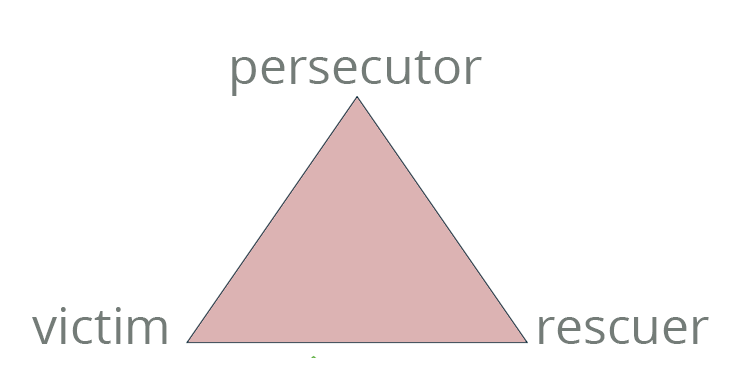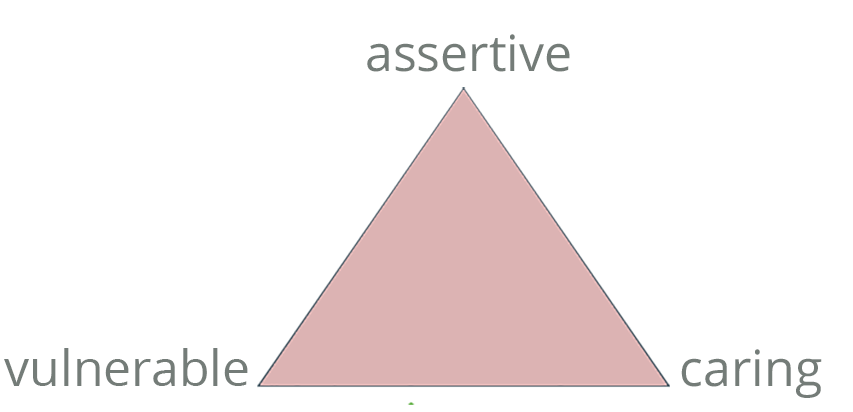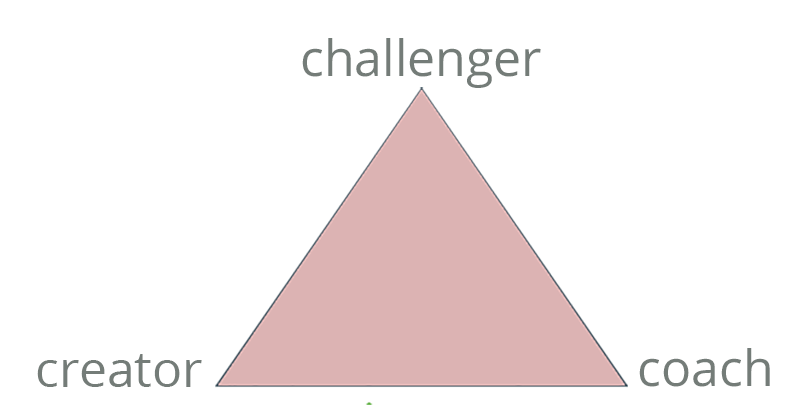What happens when you argue with your partner? Clare and Janet explore the real reasons we fight and how to do conflict well.
This podcast contains explicit language and content of a sexual nature.
DOWNLOAD THIS PODCAST TRANSCRIPT IN .PDF
Notes and references:
Changing your conflict pattern may precipitate judgement. Be prepared to be the "bad guy" in the short term while you find your way with learning new ways of doing it and the people around you come to terms with you changing. You wont really be the "bad guy" it just may look like that superficially.
The drama triangle, originally coined by Stephen Karpman in 1968, still has relevance as a way of understanding our behaviours in relationships today. Without understanding the dance we can either jump between all the angles in moments or get stuck in one particular role over time. It's unconcious and NOT FUN for anyone. It can happen anywhere - at home, on the road, at work, with neighbours, social events or even on a global scale between countries. All the roles cultivate co-dependence and drain energy.

The victim is caught in "poor me" - feels oppressed, helpless, powerless, ashamed and unable to make decisions. The persecutor (the villain) can be rigid, superior, controlling, blaming, authoritarian and oppressive. The rescuer avoids their own feelings and jumps into trying to help/fix and if it works feels righteous and proud but if it doesn't can easily get angry and fall into justified perpetrator because they tried and their 'help' was rejected.
The winners triangle, developed by Acey Choy in 1990

When in the vulnerable place we can be self-aware and problem solve, in the caring role we can show concern but be careful not to over-reach and in the assertive role we can ask for what we want but be mindful that we are not punishing
The empowerment dynamic created by David Emerald 2009

The creator takes responsibility through incremental steps; they are outcome oriented not problem oriented. The challenger encourages the creator to clarify their needs and focus on their own learning and growth by seeing them as a whole person. The coach maintains the position of seeing the creator as capable of making their own choices and solving their own problems and asks questions that open the possibility of positive action - what they want, not what they don't want.
It's all well and good having models to explain, and maybe help understand what is going on in any given moment but the work is always on HOW to do it differently. Some ways to consider include putting a pause between any stimulus and your response, examining your thinking patterns, particularly those that run deep and have been held for a long long time and consider their veracity, refuse to be superior or inferior, face up to the reality that YOU are the one that needs to change, to face any fears and take better actions, stop trying to fix people, manage your boundaries and cultivate a strong sense of your own agency and value. These are all things Janet and I explore in other episodes and in time I may write a specific post for each one.
Janet's 10 minute exercise (that takes half an hour)
turn tech off and either do at home or out on a walk
take it in turns to talk for 10 minutes. Doesnt matter who goes first because the second person isn't going to respond to the first. when it's your turn to talk you speak about how you experience something in the relationship and what that something means to you. In the podcast Janet speaks about how I feel when you don't load the diswasher. But it can be anything. The point is the other person gets to hear what their behaviour means to you. It's not a back and forth, it's just an exchange of meanings. Two important things to note about this intervention is 1) you take a break between the turn to share and 2) you don't talk about it afterwards. The point is you grow experience of listening to each other and over time understanding better your differences and over even more time realising that being different is okay.
A few pointers that are key to this working -
Don't interupt when it's the other person's turn - either verbally or non verbally (eg sighing or rolling your eyes). Really listen and communicate with your body language that you are listening. This is NOT agreeing with their worldview; it's just getting to know it.
Don't talk about it afterwards. Give yourselves time to digest what you've heard
Clare's 10 minute exercise (that takes 10 minutes)
As above only you're going to face each other, set a timer, and talk for 3 minutes from the "I". All sentences begin with "I". I think, I feel, I want, I hope, I noticed, I like etc etc. You are practicing talking about yourself which can be easier for the listener to tolerate because it's about you and not about them. If you dry up (some folk are really unpracticed at talking about themselves) the listener can help by repeating the last sentence they heard. When the buzzer goes the listener paraphrases what the talker said. If they've misunderstood the talker can repeat in another way. Once the talker is confident they've been heard fully you swap roles. Sometimes getting good at paraphrasing can take a few goes so I always recommend starting with something uncontroversial while you just get good at listening and summarising. Once those tools are in the bag you can start speaking about more tricky subjects. I encourage clients to make this a daily practice, even doing it over FaceTime or Whatsapp if life requires them to be apart for some reason.


